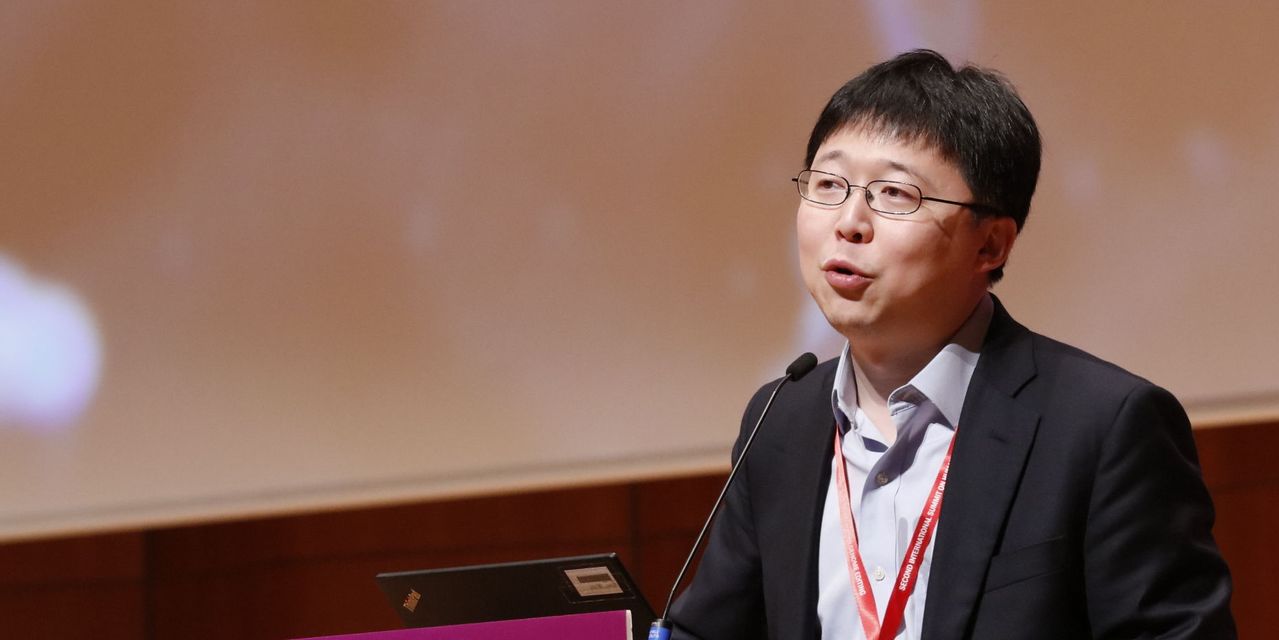

In the latest twist in a long-running legal dispute over a popular gene-editing tool, U.S. patent authorities ruled that the Broad Institute deserves the credit for inventing a way to use Crispr in plants and animals.
The U.S. Patent and Trademark Office’s 84-page decision involves some of the biggest names and institutions in science. It pits Broad—a partnership including the Massachusetts Institute of Technology and Harvard University—against the University of California, Berkeley, the University of Vienna and the Nobel Prize-winning scientist
Emmanuelle Charpentier.
The ruling Monday cancels certain patent applications made by the University of California and its partners regarding a Crispr system known as Crispr-Cas9, stating that they failed to provide persuasive evidence that they got the gene-editing technology to work before the Broad group did.
Crispr stands for Clustered Regularly Interspaced Short Palindromic Repeats. The term refers to the immune system of bacteria, which likely evolved to ward off attacks by viruses, and to a gene-editing tool created when scientists reprogrammed a Crispr enzyme. The tool is now used to edit the genes of plants and animals, including humans.
The dispute between the two groups, which seems likely to continue, involves huge sums of money and scientific prestige.
In a seminal paper published in June, 2012, a team led by Dr. Charpentier and Dr.
Jennifer Doudna
of the University of California, Berkeley, described how they reprogrammed the Cas9 enzyme to enable the editing of genes.
Dr. Doudna and Dr. Charpentier, who was working at the University of Vienna at the time of the discovery but has since moved to an institution in Berlin, shared the Nobel Prize in Chemistry in 2020.
But the Nobel Prize committee and the patent office operate under different standards, said
Jacob Sherkow,
a University of Illinois College of Law professor who has closely followed the dispute. The committee awarded the prize to the first to conceive the invention, he said, “not who is the first to get it to work in an easy, replicable process for other scientists.”
The central question in the dispute is which group got the Crispr-Cas9 tool to successfully edit genes in eukaryotic cells, those that have nuclei and are in plants and animals. The patent board ruled that a group led by Broad’s Dr.
Feng Zhang
did it first.
The decision included a page from the lab notebooks of Dr. Doudna and her colleagues dated March 1, 2012, in which the idea for the gene-editing technology and its possible utility to edit plant and animal DNA was laid out. The page was dated and signed by the scientists—an indication, Mr. Sherkow said, that the researchers knew they were “on to something big, something patentable.”
The patent officials said the University of California and its partners came up with the idea for a “generic” Crispr-Cas9 editing system on that date, but didn’t provide convincing evidence that their experiments were successful in plants and animals until later in 2012—after the Broad team.
“I am not pleased with the ruling,” Dr. Doudna said. “I don’t agree with it. It will be appealed.” She added, “I stand by our work. It is very clear in the scientific community what was done by whom and when.”
The University of California said in a statement that the decision contains “a number of errors.” Broad said in a statement that the decision confirmed that its patents were properly issued.
Photo:
alexander heinl/Shutterstock
In an earlier chapter of the dispute, the University of California group said the Broad patents overlapped with its own invention and in 2015 asked the patent office to intervene. The patent office in 2017 ruled that the Broad patents didn’t interfere.
“Then things got wacky,” Mr. Sherkow said. The University of California group filed more patent applications for the Crispr gene-editing system. This time, he said, the patent authorities and not the rival parties raised the question of who invented the tool for use in eukaryotic cells, the subject of Monday’s decision.
As the patent dispute continues, companies working to develop Crispr gene-editing drugs are reporting successful results in early-stage clinical trials. Shares of
Editas Medicine Inc.,
which licensed the technology from the Broad Institute, closed up 2.2% Tuesday, while shares of companies with licenses from the University of California and its partners were down:
shares fell 6.4% and
shares dropped 19.2%.
The field and the technology are moving so rapidly, with so many patents involved, that “the only safe course for a company getting into this business is to take a license from both groups,” said
Jorge Contreras,
a University of Utah S.J. Quinney College of Law professor who follows the case. “I don’t see any huge financial benefit to keep going with this dispute,” he said. “But so far, neither side has been able to lay down the hatchet.”
Write to Amy Dockser Marcus at amy.marcus@wsj.com
Copyright ©2022 Dow Jones & Company, Inc. All Rights Reserved. 87990cbe856818d5eddac44c7b1cdeb8
24World Media does not take any responsibility of the information you see on this page. The content this page contains is from independent third-party content provider. If you have any concerns regarding the content, please free to write us here: contact@24worldmedia.com

Common Mistakes When Using Athletic Field Tarps

High-Performance Diesel Truck Upgrades You Should Consider

Warehouse Optimization Tips To Improve Performance

Fire Hazards in Daily Life: The Most Common Ignition Sources

Yellowstone’s Wolves: A Debate Over Their Role in the Park’s Ecosystem

Earth Day 2024: A Look at 3 Places Adapting Quickly to Fight Climate Change

Millions of Girls in Africa Will Miss HPV Shots After Merck Production Problem

This Lava Tube in Saudi Arabia Has Been a Human Refuge for 7,000 Years

Four Wild Ways to Save the Koala (That Just Might Work)

National Academy Asks Court to Strip Sackler Name From Endowment

Ways Industrial Copper Helps Energy Production

The Ins and Out of Industrial Conveyor Belts